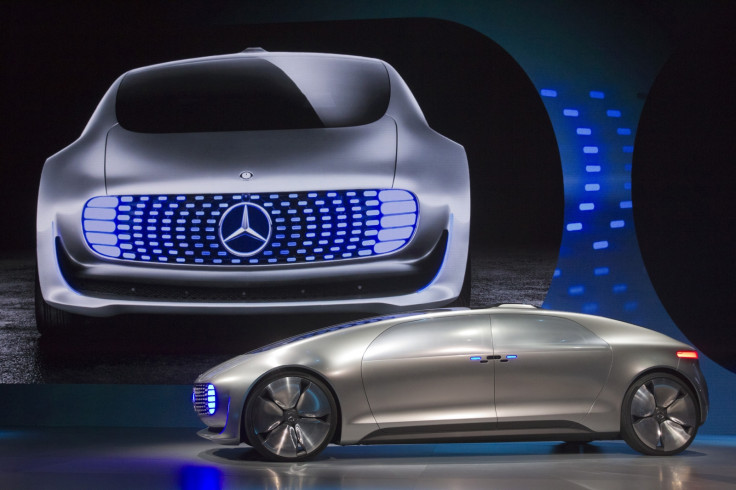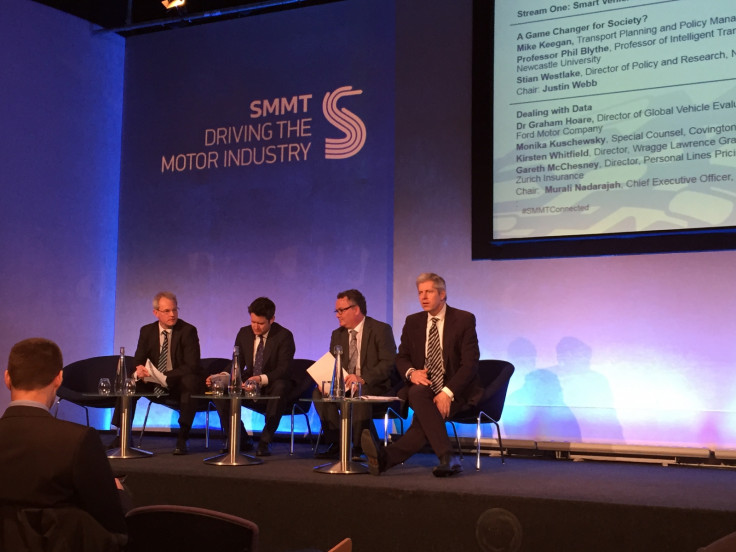Self-driving cars will change city design and postal service but they could also make us unhappy

A future of self-driving, autonomous cars will mean much more than reading the newspaper on the commute to work; city layouts will change, car parks will be relocated and retail models will be different. But these vehicles could also make us unhappy.
Speaking at the SMMT Connected conference in London, Stian Westlake, director of police and research at innovation charity Nesta, said autonomous cars will ferry their owners between car parks and city centres and collect our dry cleaning.
He said: "We will rapidly see big changes to the urban landscape. Being able to move parking off-site, creating self-park and ride cars - will potentially lead to a transformation to our city centres. This could take currently wasted urban space and turn it into retail space, or provide space for extra housing. It's hugely attractive."
Logistics become much cheaper and easier to handle, for example a dry cleaners could have your car collect your laundry without needing you to drive there
Westlake sees a future where autonomous cars would be driven by their owners to a city centre, then left to drive themselves to out-of-town car parks. They would then collect their owners again when requested. Audi has already developed a prototype that can navigate itself through a multi-storey car park, park itself, then return to the owner outside when requested via a smartphone app.
Would delivery drivers be out of the job?
"On the next horizon beyond that," Westlake continued, "we start to see retail models - the way we shop - change. With truly unmanned journeys you start to open the way for new models of doing business. Logistics become much cheaper and easier to handle, for example a dry cleaners could have your car collect your laundry without needing you to drive there."
When asked by an audience member if this future would put delivery drivers out of work, Westlake said it would not. Instead, he pointed out it would change the skill set required to be a courier; they would need more customer relation skills to be used when dropping off and collecting parcels, while the skills needed to drive a van through a busy city would be almost entirely removed from the equation.

"The future is much more optimistic for [delivery drivers] than Amazon warehouse workers [who can be replaced by robots]. You can't automate everything, including taking things out of the van and delivering them to the customer... we could see a world where the driver does less of the job, but they are unlikely to be made redundant. They may well have different skills [due to] more customer interaction."
Portable battery for your home
With autonomous cars all expected to be electric, Westlake believes their battery packs will change how we use electricity and how we power our homes.
If driving makes people happy, what will happen if we no longer need to drive ourselves?
He said: "If, as is entirely plausible, there is a significant increase in electric vehicle sales, that means many of us will have an electric storage unit outside our houses.
"Imagine a Tesla battery pack outside each house, combined with solar panels on the roof and wind turbines in the garden, you see a world in which it's possible to store power locally. This solves a big problem of where to store renewable power."
However, autonomous cars could affect us psychologically - and not just by making us uneasy at the thought of a vehicle driving itself while we watch Netflix from what used to be the driver's seat.
Westlake explained: "Research shows people love activities which generate flow - activities which are difficult but not too difficult. For most people the best flow comes from driving, because it's not trivial but is easy enough for you to get absorbed by.
"In a world where that no longer exists it raises psychological questions; is this a problem, will it matter that we are no longer able to do something we genuinely enjoyed? If driving makes people happy, what will happen if we no longer need to drive ourselves?"
© Copyright IBTimes 2025. All rights reserved.






















